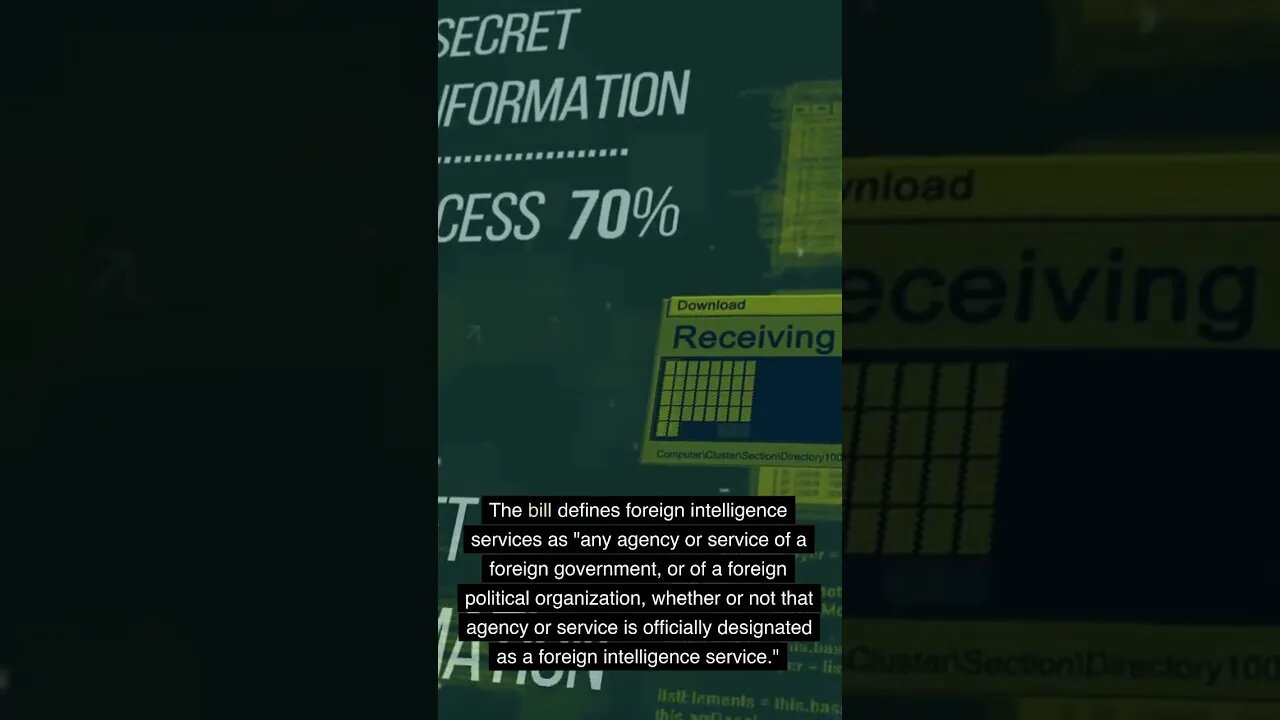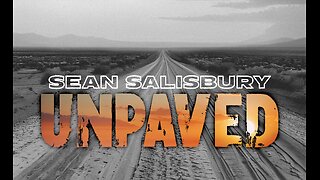Premium Only Content

The Restrict Act: Is the US Sacrificing Privacy for National Security?
If you want to learn more about the Restrict Act and other issues related to freedom, independence, and self-governance, visit Macksie.com.
In recent years, there has been a growing concern about the erosion of privacy rights in the United States. The latest bill to raise alarm bells is the Restrict Act, which was introduced in Congress to supposedly strengthen national security measures. However, critics are worried that this act could severely undermine the principle of innocent until proven guilty and put individual rights at risk.
One of the key issues with the Restrict Act is the broad definition of "foreign intelligence services" used in the text. According to the bill, foreign intelligence services refer to "any agency or service of a foreign government, or of a foreign political organization, whether or not that agency or service is officially designated as a foreign intelligence service." This means that individuals and organizations that communicate with foreign entities, including academic institutions and non-profit organizations, could be subject to restrictions and scrutiny.
There are several provisions in the Restrict Act that are causing concern among privacy advocates. For instance, the bill proposes to expand the powers of the Foreign Intelligence Surveillance Court (FISC) to include not just foreign intelligence gathering but also cyber espionage and other forms of electronic surveillance. The FISC has been criticized in the past for being too secretive and opaque, which makes it difficult to hold them accountable.
Moreover, the bill also seeks to criminalize the disclosure of classified information related to intelligence operations. This means that journalists, whistleblowers, and even government employees who reveal information deemed classified could be subject to harsh penalties, including imprisonment.
Critics argue that the broad definition of foreign intelligence services, coupled with the expansion of the FISC's powers and the criminalization of information disclosure, could lead to widespread surveillance and censorship. They fear that the government could use this act to spy on American citizens, infringe on their privacy, and stifle dissent and free speech.
While it is important to protect national security and prevent foreign interference in US affairs, it is equally important to uphold the principles of democracy and individual rights. The Restrict Act could have far-reaching consequences, not just for Americans but also for people around the world. It is important to stay informed about this bill and its potential implications, and to speak up for your rights.
#shorts # restrictact
-
 18:29
18:29
The Rad Factory
1 day ago $5.93 earnedBuilding Shred Eighty a Custom Honda Snow Kart
47.2K8 -
 UPCOMING
UPCOMING
Precision Rifle Network
1 day agoS4E7 Guns & Grub - What makes group size increase?
50.9K2 -
 46:29
46:29
SGT Report
1 day agoAMERICA IS BACK! BYE BYE IRS!! -- Sam Anthony
88.5K97 -
 8:56:13
8:56:13
Dr Disrespect
22 hours ago🔴LIVE - DR DISRESPECT - WARZONE - 150 PLAYER LOBBIES
187K20 -
 1:27:35
1:27:35
Redacted News
17 hours ago"This is NOT normal" Trump just destroyed the woke mob as Dems in disarray | Redacted News Live
171K323 -
 1:39:52
1:39:52
Vigilant News Network
18 hours agoUNHINGED: Dems Say That Elon Needs to ‘Go Back to AFRICA?’ | The Daily Dose
108K25 -
 1:13:13
1:13:13
Sean Unpaved
18 hours ago $7.65 earnedQB Carousel with Guest Coach Herm Edwards
94K4 -
 1:04:28
1:04:28
Crypto Power Hour
1 day ago $6.41 earnedThe Crypto Power Hour - ‘In Crypto We Trust’
89.5K8 -
 28:55
28:55
CatfishedOnline
17 hours agoWoman Love Bombed by Salt-and-Pepper Scammer
54.7K7 -
 14:51
14:51
Misha Petrov
17 hours agoDemocrats HUMILIATED at Trump’s Congressional Address! Breaking Down the MUST-SEE Moments
49.1K36